6 Different Types of Water Softeners (with Pictures)
-
- Last updated:
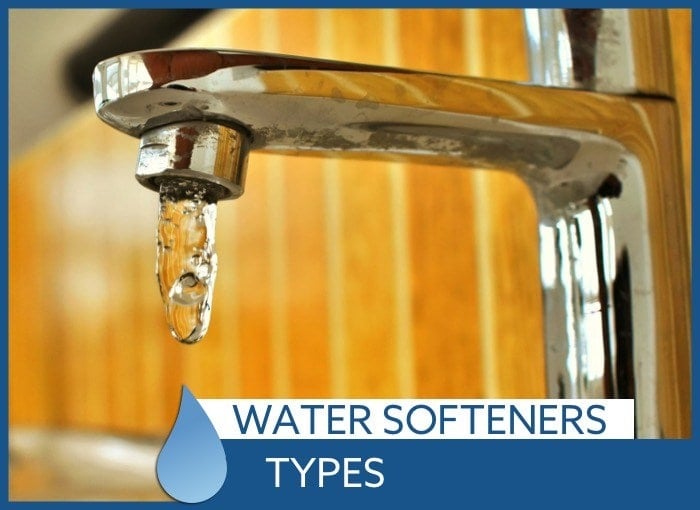
Softened water has many benefits over hard water, but the water delivered to most of our homes is full of hard minerals. Water softeners exist to solve this problem, but there are several different types to choose from. Though all of these types of water softeners will reduce the mineral content in your water to leave you with beneficial softened water, they do so in different ways.
Which device is best suited for your situation? To help you decide, we’re going to briefly discuss each one of these water softeners and establish their pros and cons. Afterward, you should know exactly which type of softener is going to best meet your needs.

The 6 Different Types of Water Softeners
1. Salt-Based (Ion-Exchange) Water Softeners
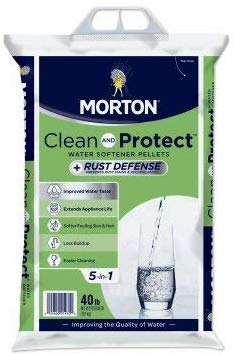
Salt-based systems are the traditional type of water softener that most people are accustomed to. They are meant to supply soft water to a whole house and feature high rates of flow. A resin inside attracts calcium and magnesium from your water and replaces them with sodium ions in a process called ion-exchange. When your resin runs out of positively charged sodium ions to exchange for the hard minerals in your water, you can regenerate the resin using salt. This requires a bit of regular maintenance on your part since regeneration will need to occur about once a week.
These systems completely remove the hard water causing minerals but little else. If there are chemicals or bacteria present in your water, then a salt-based softener won’t remove it. Inside, the resin will last for many years. When it runs out, you can replace it for a low cost, enabling these systems to last for a very long time.
- Completely removes hard water minerals
- Very long lifespan
- Requires weekly upkeep
- Will need to continually buy bags of salt
2. Salt-Free Water Softeners
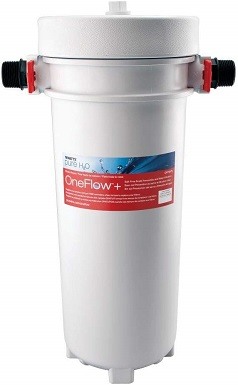
Salt-free systems don’t require the same continual upkeep that ion-exchange systems do since they don’t need regeneration or salt. These types of water softeners don’t actually remove the hard minerals from the water. Instead, they neutralize them to prevent them from sticking together and creating the buildup that leads to hard water.
This type of water softener tends to be more expensive to get started with, but they cost less in the long run since you won’t be constantly adding in large bags of salt and doing weekly upkeep. They also take up less space than salt-based systems since there’s no need for an additional tank to take care of brining and draining. Despite being more compact, many salt-free systems feature a multi-stage filtration process that will do more than just neutralize minerals, removing unwanted impurities from the water like bacteria and chemicals.
- No maintenance
- Doesn’t add sodium to your water
- Can often filter out other impurities
- Very expensive
- Doesn’t actually remove hard minerals
3. Portable Water Softeners
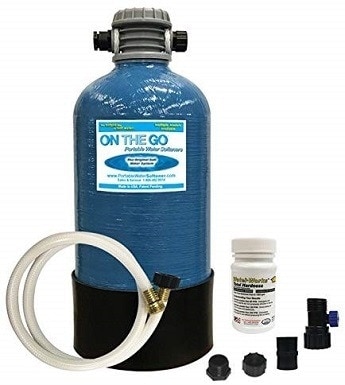
Portable water softeners make it possible to have soft water wherever you go. These are perfect for travelers in RVs or travel trailers. They require no electricity and can go for several weeks between regenerations. When you need to regenerate a portable water softener, all it takes is a bit of regular table salt. Generally, no tools will be necessary to complete the process. They don’t have the same level of water flow that you’ll get from a full-size softener, but they can easily supply water to a single bathroom or drinking water for several people. They’re also much less expensive than their bigger brothers that are designed to supply a whole house.
- Small and compact
- Great for RVs and travel trailers
- Won’t provide enough water for a whole house
- Usually these are salt-based systems
4. Showerhead Water Softeners
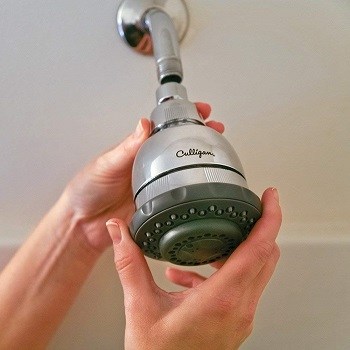
Water softeners can be pretty costly since most are designed to supply an entire house with soft water. For many, this is too great of an investment. However, showerhead softeners make it much more affordable to get many of the benefits of using soft water. Your hair and skin will feel much more hydrated and healthy. You’ll also have no more hard water spots on your shower walls and doors, and you’ll have less soap scum to clean up as well.
Showerhead water softeners install very easily by simply unscrewing your old showerhead and screwing on the new one. They use cartridge filters to condition your water and remove the unwanted minerals and more. The filter will need to be replaced about every two months. Some of these showerheads even feature vitamin filters that fortify your water with extra vitamins. Be careful about additives though. We tried some that also added scents and not everyone found them to be pleasant.
- Inexpensive
- Easy to install
- Only provides soft water to the shower
- Can contain unwanted additives
5. Reverse Osmosis Water Softeners
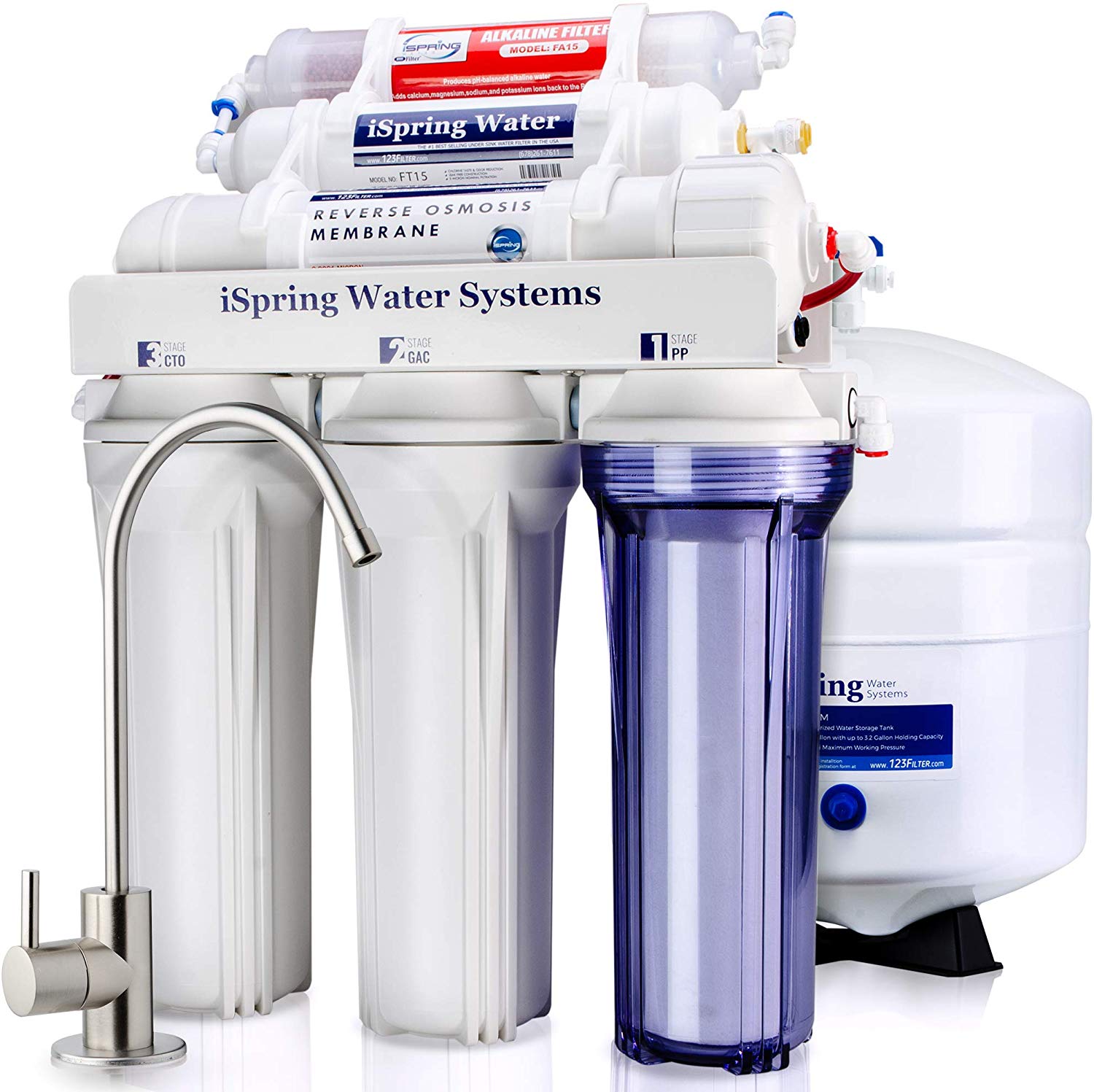
Reverse osmosis systems may not be generally thought of as water softeners, but they strip the water of all substances, including hard water causing minerals like calcium and magnesium. These types of water softeners often feature extra steps to re-introduce healthy minerals into the water so you’ll still have them for drinking. Generally built for under-sink installation, these units will often provide their own faucet from which you can have purified, soft water on tap. Reverse osmosis uses high pressure to force the water through an RO membrane that filters down to microscopic levels. The water will also be fed through several other filters on the way to ensure that all impurities are removed.
- Very healthy drinking water when minerals are reintroduced
- Can have unlimited RO water on tap
- Only provides soft water to one faucet
- Can be quite expensive
6. Magnetic Water Softeners
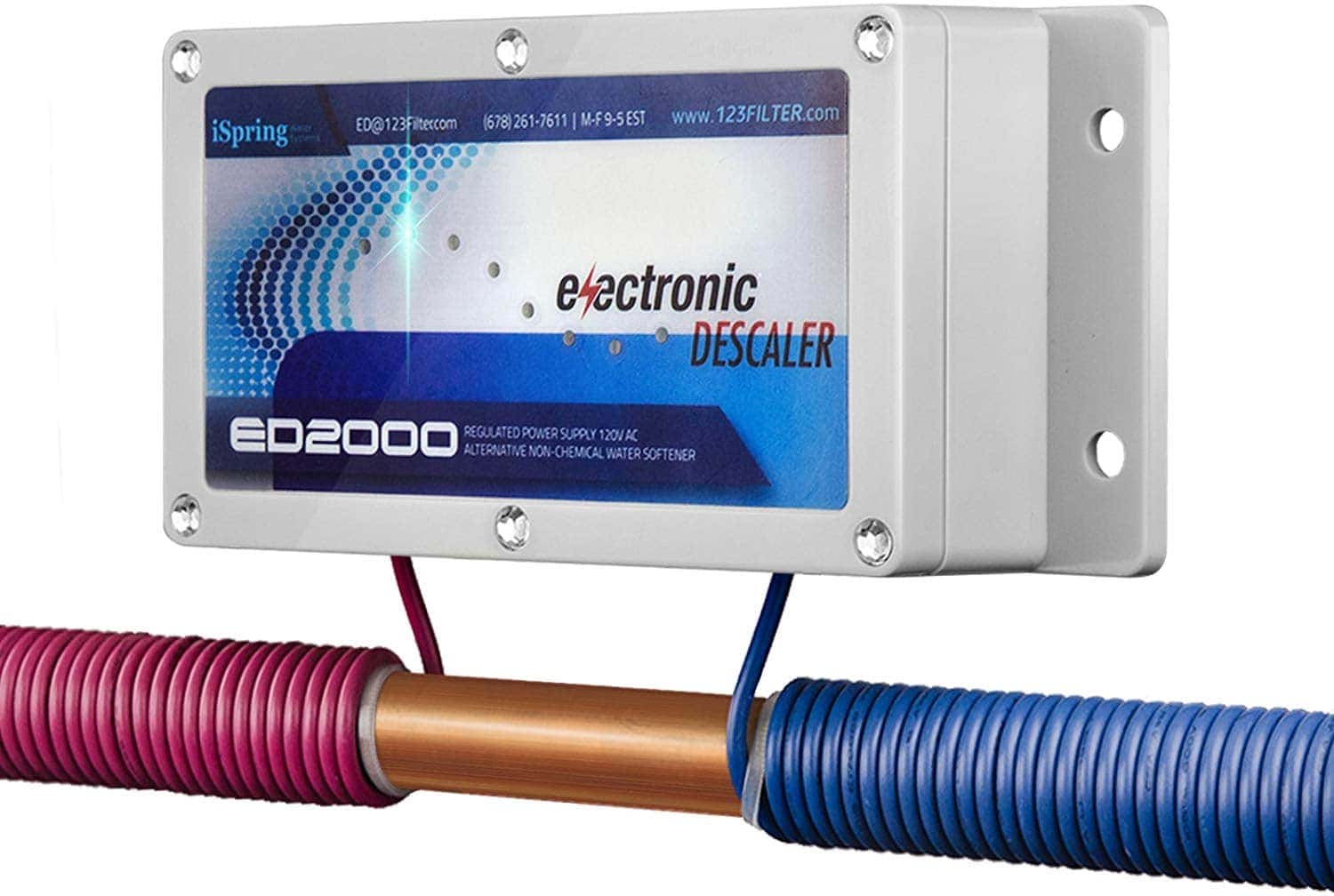
Magnetic water softeners are pretty new on the market. These are advertised as a water softener alternative since they don’t remove the hard minerals. Similar to salt-free systems, magnetic water conditioners neutralize the hard minerals to prevent them from bonding together, keeping them completely soluble. This means you’ll get all of the benefits of soft water, but these systems are much more affordable. They’re also easy to install and you won’t have to cut any pipes or even turn off the water. Instead, you’ll just wrap them around your existing pipes and the magnetic field will condition the water passing through. You may need to wire them into your home’s electric though, so keep that in mind.
- Affordable
- Easy to install
- Don’t have to cut any pipes
- Only neutralizes minerals, doesn’t remove
- Requires electricity

Conclusion
We’ve discussed six different types of water softeners. Some of these will condition the water for your whole house while others will only soften the water to a single shower or faucet.
- Ion-exchange systems use salt to exchange sodium ions for the hard-mineral ions present in the water.
- Salt-free systems neutralize the hard minerals so that they can no longer form bonds.
- Portable water softeners provide you with conditioned water anywhere you go without the need for tools or electricity.
- Showerhead softeners make it easy and affordable to shower with soft water and avoid scale on your shower walls and fixtures.
- Reverse osmosis strips the water of all impurities by forcing it through a membrane at high pressure, and then reintroducing the essential minerals you need for health and flavor.
- Finally, magnetic water softeners easily install by wrapping around your pipes and neutralize the hard-mineral ions as they pass by.
Whether you’re trying to avoid hard water stains and rust on your bathroom fixtures and tiles or you want the nice feeling of skin and hair that’s been washed in soft water, a water softener can provide you with the solution to your hard water problems.
See Also:
- Water Softener Costs: System & Installation Prices
- Renting Vs Buying A Water Softner: What’s Best? (Monthly Cost Analysis)
Featured Image Credit: Pexels
Contents

